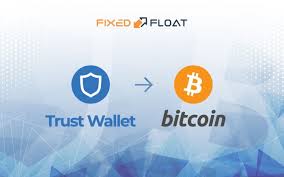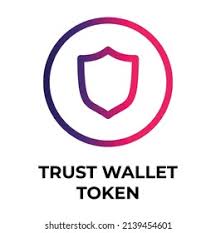
Trust Wallet is safer for storing crypto since you control your private keys, while Binance is more vulnerable due to its custodial nature.
Security Measures on Binance
What Security Features Does Binance Offer?
Binance offers a range of security features to protect user accounts and funds:
-
Two-Factor Authentication (2FA): Binance requires 2FA for account login, withdrawals, and API access, adding an extra layer of protection.
-
Cold Storage: The majority of user funds are stored in cold wallets (offline storage), reducing the risk of hacking.
-
Anti-Phishing: Binance offers an anti-phishing code, allowing users to recognize official communication and avoid scams.
-
SMS and Email Alerts: Binance sends notifications for account activity, helping users detect unauthorized actions.
-
Whitelisting: Users can set withdrawal whitelist addresses to prevent unauthorized withdrawals.
How Does Binance Protect User Funds?
Binance takes several steps to safeguard user funds:
-
Cold Storage: Most user assets are kept in cold wallets that are not connected to the internet, minimizing exposure to hackers.
-
Secure Asset Fund for Users (SAFU): Binance has a security fund called SAFU, which is designed to cover potential losses due to unforeseen events or breaches.
-
Insurance Fund: Binance maintains an insurance fund to protect users in the event of a system breach or trading errors.
-
Advanced Encryption: Binance uses encryption protocols to secure user data, ensuring that private information is protected.
-
Regular Security Audits: Binance regularly undergoes security audits to identify and fix vulnerabilities.

Security Measures on Trust Wallet
How Secure Is Trust Wallet?
Trust Wallet is secure due to its non-custodial nature and local storage of private keys. Only you control your assets.
-
Non-Custodial: You control your private keys.
-
Local Storage: Private keys are stored securely on your device.
-
Encrypted Recovery Phrase: Backup with a 12-word recovery phrase.
What Security Features Are Included in Trust Wallet?
Trust Wallet offers several security features to protect your funds:
-
Private Key Control: Full control over your crypto.
-
Biometric Authentication: Fingerprint and face recognition for quick, secure access.
-
PIN Protection: Set a PIN to prevent unauthorized access.
-
Backup Options: 12-word recovery phrase for wallet recovery.
-
Security Scanner: Identifies risks and helps ensure safe transactions.

Custodial vs. Non-Custodial Wallets
What Is the Difference Between Custodial and Non-Custodial Wallets?
The key difference between custodial and non-custodial wallets is who controls the private keys:
-
Custodial Wallets: The wallet provider (such as an exchange) holds and manages your private keys. You rely on the provider for security, which means you don’t have full control over your funds.
-
Non-Custodial Wallets: You control your private keys and funds, meaning only you have access to your crypto assets. There is no reliance on third parties.
How Does Trust Wallet’s Non-Custodial Nature Improve Security?
Trust Wallet’s non-custodial nature enhances security by ensuring that:
-
Full Control: You are the only one with access to your private keys, reducing the risk of hacks or theft from centralized exchanges.
-
No Third-Party Access: Since Trust Wallet does not store your private keys, there’s no risk of your funds being compromised by a third-party provider.
-
Increased Privacy: Trust Wallet does not collect personal information, providing greater privacy and security for users.
-
Resilience Against Hacks: If Trust Wallet is compromised, your funds remain safe as they are stored on your device, not on an exchange.
User Control Over Private Keys
How Does Binance Handle Private Keys?
Binance is a centralized exchange, so it handles users’ private keys:
-
Custodial Control: Binance stores and manages users’ private keys on their behalf.
-
Security Measures: While Binance employs strong security protocols like cold storage and insurance funds, users do not have direct access to their private keys.
-
Risk: If Binance’s security is compromised, users’ funds could be at risk, as the exchange holds custody of the private keys.
How Does Trust Wallet Allow Users to Control Their Keys?
Trust Wallet is a non-custodial wallet, which means users have full control over their private keys:
-
Private Key Ownership: When you create a Trust Wallet, your private keys are stored locally on your device, giving you full control.
-
No Third-Party Access: Trust Wallet never stores your private keys or funds, ensuring that only you can access and manage them.
-
Backup Options: You are provided with a 12-word recovery phrase to restore your wallet and private keys if your device is lost or damaged.
-
Enhanced Security: Since Trust Wallet does not store your keys on external servers, there is less risk of hacks or unauthorized access.

The Risk of Centralized Exchanges
Are Centralized Exchanges Like Binance Riskier Than Decentralized Wallets?
Yes, centralized exchanges like Binance are riskier because:
-
Custodial Risk: The exchange holds your private keys, making your funds vulnerable if the exchange is hacked.
-
Single Point of Failure: A breach or technical failure at the exchange can affect all users.
-
Regulatory Risks: Changes in regulations can impact user access to funds.
Decentralized wallets like Trust Wallet allow you to control your keys, reducing these risks.
How Do Centralized Exchanges Handle Security Compared to Wallets?
Centralized exchanges like Binance use:
-
Cold Storage: Funds are mainly kept offline, but online storage still poses a risk.
-
Multi-Signature Authorization: Extra layers of approval for withdrawals.
-
Insurance Funds: Some exchanges, like Binance, have insurance to cover user losses.
-
User Authentication: Processes like 2FA for added security.

Insurance and Fund Protection
Does Binance Offer Insurance for User Funds?
Yes, Binance offers insurance through the Secure Asset Fund for Users (SAFU):
-
SAFU Fund: Binance maintains a SAFU fund to cover user losses in the event of a security breach.
-
Coverage: The SAFU fund is primarily used to protect users against unforeseen events like hacks.
-
Limited Coverage: While SAFU provides an extra layer of protection, it does not guarantee full coverage for all potential risks.
Is There Any Protection for Funds Stored in Trust Wallet?
Trust Wallet does not offer direct insurance for funds, as it is a non-custodial wallet:
-
No Custodial Protection: Since you control your private keys, Trust Wallet does not store or protect your funds on your behalf.
-
Security Features: Trust Wallet offers robust security measures like encryption, backup options, and biometric authentication, but the responsibility for securing your funds lies with you.
-
Backup and Recovery: You can use a 12-word recovery phrase to restore your wallet in case of device loss, but there’s no insurance coverage for your assets.

Conclusion: Which Is Safer for Storing Crypto?
Should I Use Binance or Trust Wallet for Safe Crypto Storage?
The safety of your crypto depends on your preferences and risk tolerance:
-
Binance: While Binance offers insurance through its SAFU fund, it is a centralized exchange where you don’t control your private keys. This makes it more vulnerable to hacks and regulatory risks.
-
Trust Wallet: A non-custodial wallet that gives you full control over your private keys. While there’s no insurance, the wallet is generally safer in terms of ownership and control since you are not relying on a third party.
What Factors Should I Consider When Choosing Between Binance and Trust Wallet?
Consider these factors when choosing between Binance and Trust Wallet:
-
Control of Funds: With Binance, you don’t control your private keys, while with Trust Wallet, you hold full control over your assets.
-
Security: Binance offers insurance (SAFU), but Trust Wallet offers greater security through its non-custodial, decentralized nature.
-
Ease of Use: Binance is easier for trading and converting between fiat and crypto, while Trust Wallet excels at storage and staking without requiring third-party involvement.
-
Transaction Fees: Binance may have lower trading fees but charges withdrawal fees, while Trust Wallet has no fees for transactions, except for blockchain network fees.
-
Insurance: Binance has SAFU to protect users, whereas Trust Wallet offers no such insurance, as users manage their own funds.
Is Binance safer than Trust Wallet?
Binance offers insurance (SAFU) but stores users’ private keys, making it more vulnerable to hacks. Trust Wallet is non-custodial, giving users control over their private keys.
How does Trust Wallet protect users?
Trust Wallet offers local private key storage on your device, encrypted backups, and a recovery phrase, providing users with full control over their funds.
Can Binance be trusted with my funds?
While Binance has strong security measures like 2FA and SAFU, users don’t control their private keys, making it riskier than a non-custodial wallet like Trust Wallet.
Leave a Reply